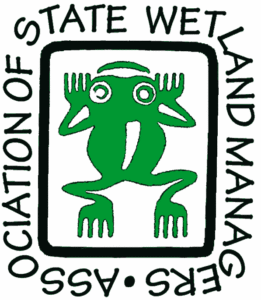Calendar
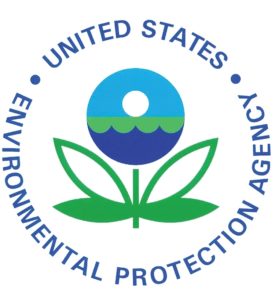
Fecal pollution in recreational and drinking source waters can result in outbreaks leading to the transmission of disease. Recent advancements in the field of molecular biology have led to the development of microbial source tracking (MST) tools that can characterize fecal pollution from different animal groups.
The Centers for Disease Control and Prevention (CDC) is using tools developed by EPA scientists for environmental investigations of waterborne outbreaks. For this webinar, EPA’s Dr. Orin Shanks will provide an overview on EPA’s MST method development activities, and CDC’s Dr. Mia Mattioli will highlight a CDC response to a recent waterborne outbreak where an EPA developed human-associated MST procedure was employed to help confirm a source of norovirus. Register here.
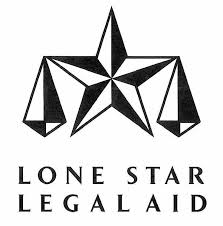
Lone Star Legal Aid’s Environmental Justice Team and the Office of Environmental Justice (OEJ) at the Environmental Protection Agency (EPA) cordially invite you to a FREE webinar to learn the basics about converting Brownfields to Healthfields (B2H). Learn how Houston-based community organizations might be able to apply a disaster recovery lens to this existing EPA program (B2H) towards an equitable and just transition post-Hurricane Harvey.
Citizen Science Lunch and Learn Series Webinar that will focus on the broad topic of citizen science and education.
Topic: Using Citizen Science as an Education Tool.
This webinar will feature an overview of 3 citizen science programs with a focus on how they use citizen science as an education tool.  Four speakers will give speed talks that describe their programs and how citizen science is used to engage students. We will also cover the following topics in the talks and/or the discussion section that follows:
- Best practices (e.g., for using citizen science to engage students, collecting high quality/usable data)
- Outcomes of the citizen science efforts on students
- Challenges they’ve had to overcome
- Validity of data collected by students and whether it is usable for research purposes
This webinar is part of the NOAA Citizen Science Lunch and Learn Webinar Series and will feature 3 speed talks on the topic of “Using Citizen Science as an Education Toolâ€.
The 3 talks are on:
1) LiMPETS: Long-term Monitoring Program and Experiential Training for Students (Claire Fackler, National Education Liaison and National Volunteer Coordinator, NOAA Office of National Marine Sanctuaries): A unique youth-based citizen science program, which gives students an opportunity to conduct real scientific observations by monitoring sandy beach and rocky intertidal ecosystems along the California coast that resource managers can use for ocean conservation efforts;
2) Marine Debris Toolkit for Educators (Alyssa Nally, Program Coordinator, National Marine Sanctuary Foundation for NOAA’s Office of National Marine Sanctuaries): The Toolkit provides useful marine debris resources and adapts the Marine Debris Monitoring and Assessment Project, a robust citizen science monitoring initiative, for classroom use. This toolkit is designed to assist teachers in educating their students about marine debris and involving them in scientific monitoring, research, and community outreach; and
3) Lake Champlain Sea Grant – UVM Watershed Alliance (Ashley Eaton, Watershed and Lake Education Coordinator and Kris Stepenuck, Extension Leader): A Collaborative K-12 education program focused on increasing watershed awareness and stewardship throughout the Lake Champlain Basin and Vermont.
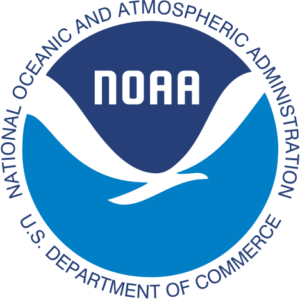
For the webcast, go to www.mymeetings.com Under “Participant Join”, click “Join an Event”, then add conf no: 744925156. No code is needed for the web. Be sure to install the WebEx application when logging in – the temporary application works fine.

Webinar to share information on the NOAA Fisheries recently released revised Marine Recreational Information Program catch estimates from 1981 to 2017 as part of its transition from the Coastal Household Telephone Survey to the new Fishing Effort Survey.
Teleconference line: 888-989-9242
Participant passcode: 2249801
Join this webinar by clicking here.
Event number: 994 566 523
Event password: noaa
Webinar #1: Improving the Information Pipeline:
Working with Consultants During Oil and Gas Pipeline Permitting Processes
Presenters:
• Evan Hansen, Downstream Strategies, LLC
• Clifford Brown, West Virginia Department of Natural Resources
• Brenda Zollitsch, Association of State Wetland Managers
This webinar provides insights about how wetland and other aquatic resource regulators can improve working relationships with consultants who serve as intermediaries for energy companies working on oil and gas pipeline development projects. This webinar will share insights from state permit reviewers on some of the common challenges, ranging from different understandings of permitting processes, points of access, pipeline terms and use of language. The webinar will discuss helpful ways of working together to establish common understanding, share key concerns about impacts to aquatic resources and incorporate best practices to address those impacts. The webinar will present a new resource developed by ASWM to help guide more productive conversations and relationships between regulators and consultants, focusing on creating transparency, common understandings, and strong relationships that facilitate both efficient permit review processes and protection of aquatic resources.

The webinar will be about climate change detection and attribution.
For access to webinars: Audio is only available over the phone: 1-877-708-1667. Enter code 7028688#
For the webcast, go to www.mymeetings.com Under “Participant Join”, click “Join an Event”, then add conf no: 744925156. No code is needed for the web. Be sure to install the WebEx application when logging in – the temporary application works fine.
Webinar #2: Cumulative Adverse Effects of Pipeline Development on Wetlands and Other Aquatic Resources
PRESENTER
• Wing Goodale, Biodiversity Research Institute
ABSTRACT
This webinar will provide an introduction about how CAE can be conceptualized, the language used to discuss CAE, and the legal basis for CAE. The presentation will discuss a framework for considering adverse effects, including a review of general approaches for CAE assessments and ways to address these effects. The webinar will conclude with the presentation of a thought-provoking approach to conducting simple assessment of CAE that could be adapted for use by wetland professionals as they work to identify and address CAE for projects they are planning and/or permits they are reviewing. The webinar will end with information about the Association of State Wetland Managers’ recent pipeline permitting project and forthcoming resources on CAE that will be available on ASWM’s website.

The webinar will be about the effects that climate change has on droughts, floods, and wildfires.
For the webcast, go to www.mymeetings.com Under “Participant Join”, click “Join an Event”, then add conf no: 744925156. No code is needed for the web. Be sure to install the WebEx application when logging in – the temporary application works fine.
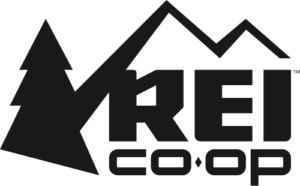
Join REI staff to learn about the basics of hiking with dogs. This class will help you plan a successful hike for you and your canine companion. They will review where to go, what to bring for you and your pup, and what you may encounter on the trail. They will talk about where to find dog-friendly parks – local, state-wide and nationally. Having the right equipment is critical, so they will discuss gear, as well as safety and comfort items you’ll need to bring along to make a safe, enjoyable hike for both you and your dog. Learn how to travel on trails with your dog in a way that makes the least impact on the natural area, including wildlife. Attendees are encouraged to bring all of their hiking with dogs questions, but unfortunately due to classroom constraints, they ask that you do not bring your non-service animals.
